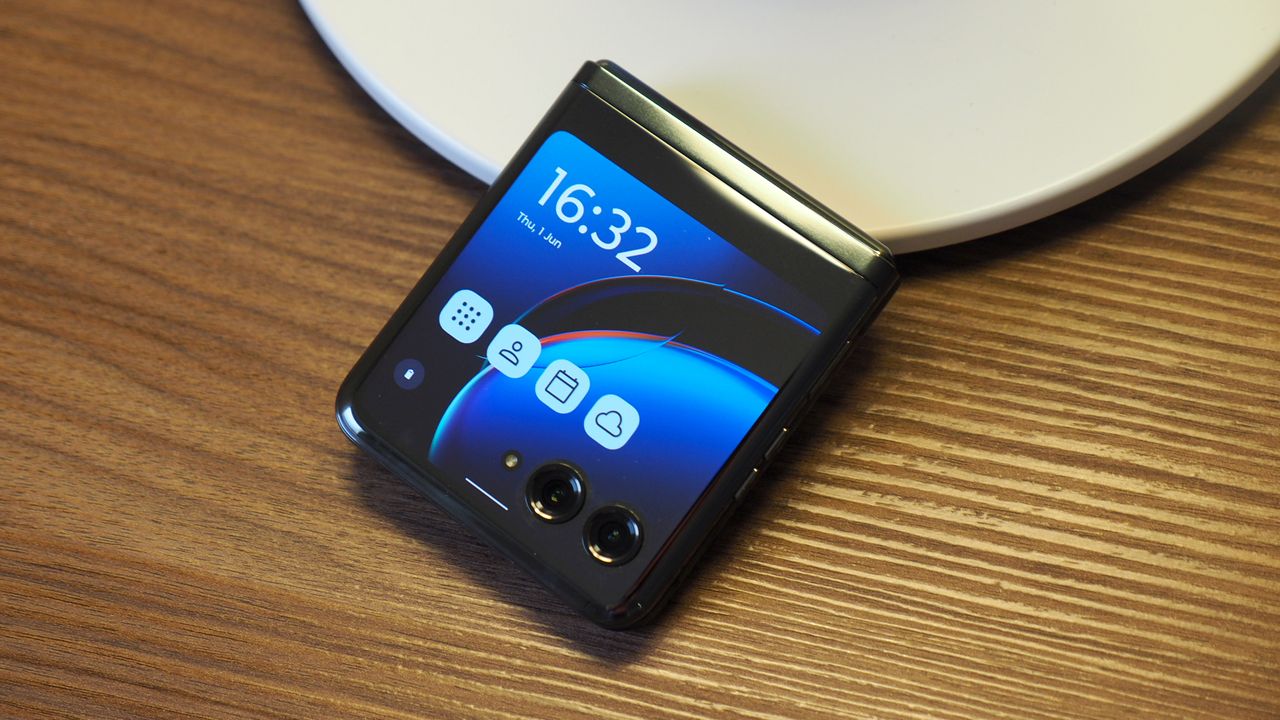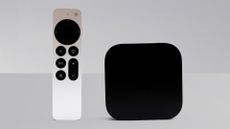
This morning I was writing all nostalgically about how I attended the Motorola Razr (re-)introduction back in 2018; the reimagination of its 2004 classic clamshell handset. As I was penning that very piece at the airport, en route to the Motorola Razr 40 Ultra launch, the company handed me its latest flagship flip-phone to try out.
And try it out I gleefully have been. So I'll cut to the chase here: the Motorola Razr 40 Ultra is the best flip-phone I've used to date. Read that as 'clamshell only', though, I'm not talking about the best folding phones in general, with the likes of the (far pricier) Google Pixel Fold incoming, joining other more tablet-esque foldables such as the Samsung Galaxy Z Fold 4.
No, the Motorola Razr 40 Ultra is a different beast; a smaller one that can easily fit into your pocket in either folded or (not that you'd want to for sake of screen protection) unfolded form. It's slimmer than the (admittedly not-foldable, unless you want to break it) Vivo X90 Pro that I've been using for some weeks now and I'm very impressed by the Moto's form-factor and appearance.
The largest cover display





Speaking of appearance, I must say the Razr 40 Ultra does look a lot more Samsung-like in its design than earlier renditions. I don't really mind this, but it perhaps shows that despite Motorola getting there first, Samsung has been in the driving seat of foldable sales for a number of years now – and the Ultra is arguably Motorola's "hey, look over here" moment, asserting that the company can offer something every bit as great.
Or, arguably, greater. There's a lot I really like about the Razr 40 Ultra – especially as the previous flip-phone I used was the Oppo Find N2 Flip, which until now offered the largest cover display of a clamshell (at 3.26-inches). Not only does the Razr 40 Ultra trounce that with a 3.6-inch cover display, including 144Hz refresh, it's just so, so much better to use. I'd half forgotten how unresponsive the Oppo's panel is by comparison to, well, pretty much any competitor on the market.
The Razr 40 Ultra's cover display is also gorgeously integrated – again in similar fashion to the Samsung Galaxy Z Flip 4 in many respects. I love how the panel is covered in a glossy coat so you can barely see where it starts or ends when it's off; and when it fires up it covers a huge portion of the front, integrating around the dual cameras, and only leaving a larger blacked-out top bezel obscured from view. This is a clamshell as it should be.
A price you'll flip out over




That large cover display is the clear big sell of the Razr 40 Ultra, especially as there's a non-Ultra version, the Razr 40, which uses the same internal panel but drops its cover display to just 1.5-inches by comparison – it also drops the price to an immediately appealing low, too, at just £799 from launch day (which is later in June).
Sign up to the T3 newsletter for smarter living straight to your inbox
Get all the latest news, reviews, deals and buying guides on gorgeous tech, home and active products from the T3 experts
Yes, that's a lot less cash than the £1,049 asking price of the Ultra model, but I think the larger cover display is a critical differentiator in the fight for best flip-phone, especially as that's what really defines a device such as this. It's super-responsive here, which is great in use, and the scale means apps are usable. Not that you'll be firing up full-fat games to play on this smaller screen, but as a glance window, I'd take this over ever wearing one of the best smartwatches.
Flip 'er open and the Razr 40 Ultra looks fantastic too. The 6.9-inch display is amply resolute, at 1080 x 2640 pixels, but also delivers really high-end features such as 165Hz refresh and a 1400 nits peak brightness that's well beyond many of the best Android phones on the market right now – ones without a hinge folding mechanism! It's slim in this format, too, at 7mm, so about on par with the Galaxy Z Flip 4.
So what's the catch?






So far, so perfect, right? Well, not quite. There are still a few unknowns about the Razr 40 Ultra that I'm yet to explore in more detail. The first that certainly gives me some degree of concern is the camera arrangement: a dual 12- and 13-megapixel main and wide-angle (respectively) don't read spectacularly well considered against today's best flagship phones. But I'm hardly surprised, it's not as though there's enough space here to plonk in a leading 1-inch sensor, as you'll find in the Xiaomi 13 Pro, for example.
The other 'TBC' aspect is battery life. With its 165Hz display and last-gen Snapdragon 8+ Gen 1 processor (not the newer 8 Gen 2), I do wonder if the 3800mAh cell inside the Razr 40 Ultra's body is going to be capacious enough to cut it. I'll find out over the coming days, I suppose, when I move into and review the Ultra as if it's my own.
Generally speaking, however, I'm still mighty impressed by what Motorola has served up here thus far: the Razr 40 Ultra is the best I've used based on my half-a-day's use with the handset so far – and I'm confident that impression will last, especially with trump cards such as the large screens and great software promise (Android 13 with little messing about).
The Motorola Razr 40 Ultra is on sale right now. That's right, you can go part with your cash already, if you've got £1,049 spare. It's available in a variety of colourful finishes courtesy of Pantone too: Viva Magenta (Pantone 'Color of the Year', apparently), Infinite Black (as reviewed here) and Glacier Blue. I'm going to see if I can track down those fancier colours just to see how much more exciting they appear...

Mike is T3's Tech Editor. He's been writing about consumer technology for 15 years and his beat covers phones – of which he's seen hundreds of handsets over the years – laptops, gaming, TV & audio, and more. There's little consumer tech he's not had a hand at trying, and with extensive commissioning and editing experience, he knows the industry inside out. As the former Reviews Editor at Pocket-lint for 10 years where he furthered his knowledge and expertise, whilst writing about literally thousands of products, he's also provided work for publications such as Wired, The Guardian, Metro, and more.
-
 Apple TV gets a free update that makes it more simple to use
Apple TV gets a free update that makes it more simple to useApple has released tvOS 18.4 with a few design tweaks for its TV boxes
By Rik Henderson Published
-
 Tired of a bad lower back? Bulletproof it with these three simple exercises
Tired of a bad lower back? Bulletproof it with these three simple exercisesA fitness expert shares three easy moves you can do straight from the comfort of your home
By Bryony Firth-Bernard Published
